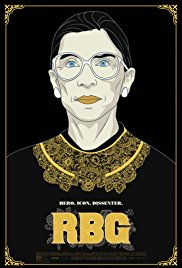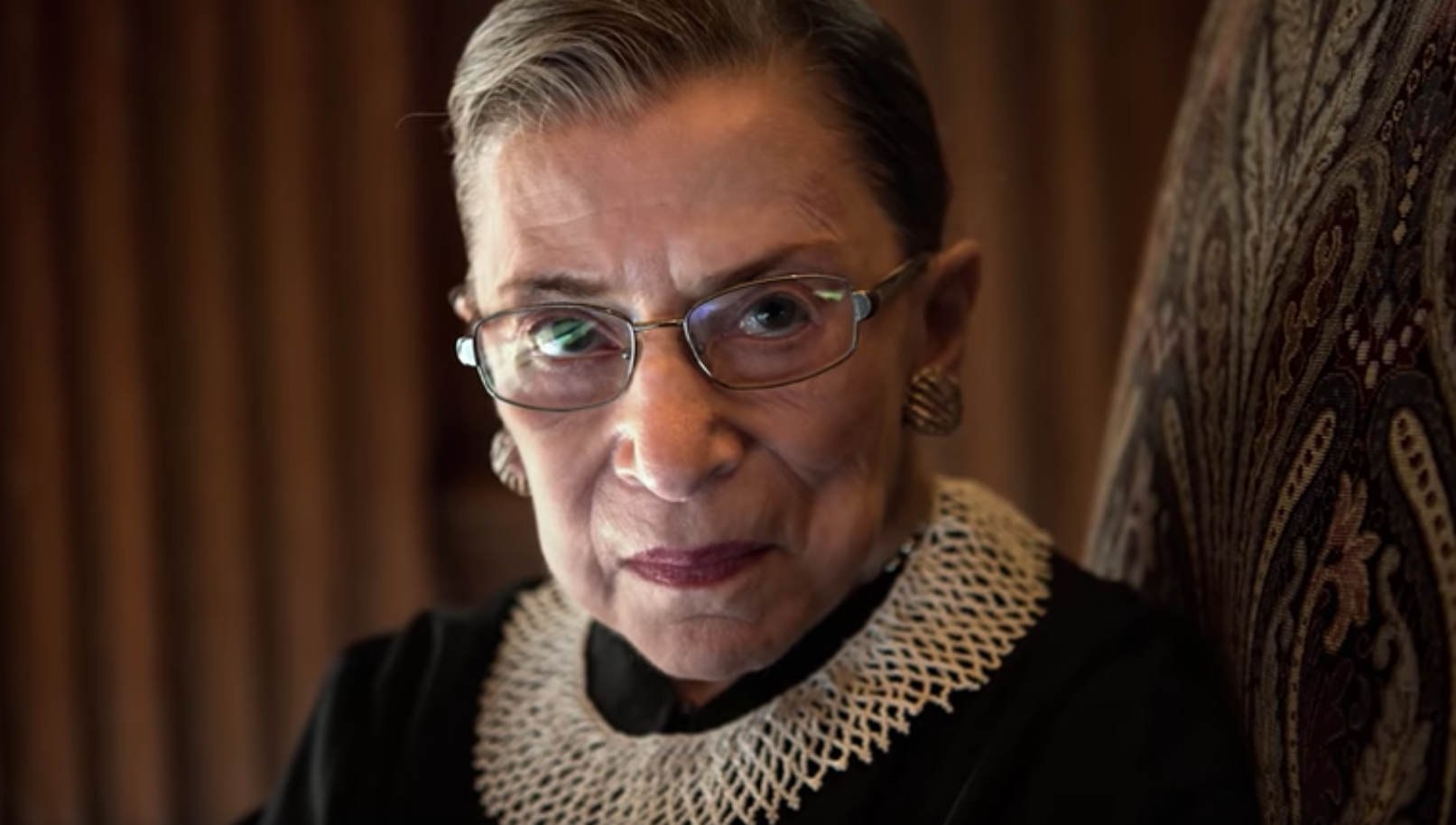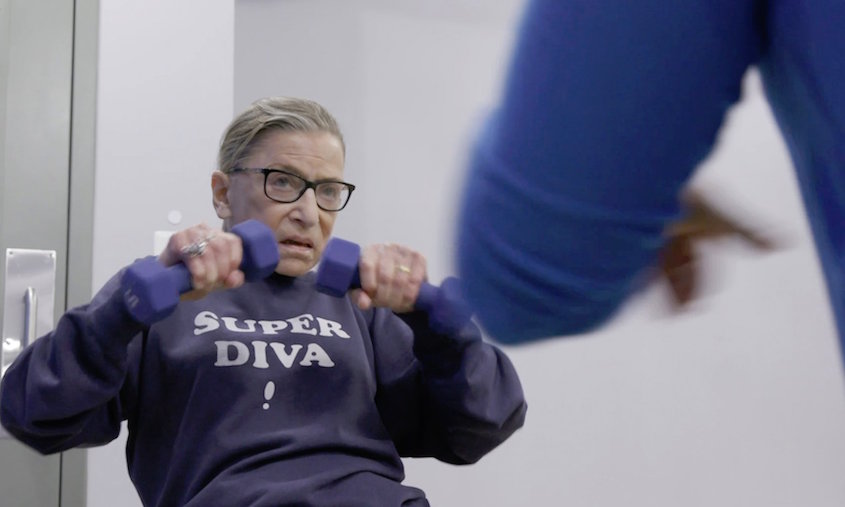By Glenn Dunks
 There is little denying that Ruth Bader Ginsburg is a great woman. Sadly, however, she has not been granted a documentary of equal merit. The new documentary RBGrushes through many of her life’s accomplishments without any of the attentive analysis deserving of somebody who has been so instrumental to the shaping of society. Directed by Julie Cohen and Betsy West (producer of The Lavender Scare which you may have seen on the queer festival circuit), RBG is never less than full of effusive praise, but sloppy directorial choices make the film less than totally involving. It's light on the force and scope that one ought to expect.
There is little denying that Ruth Bader Ginsburg is a great woman. Sadly, however, she has not been granted a documentary of equal merit. The new documentary RBGrushes through many of her life’s accomplishments without any of the attentive analysis deserving of somebody who has been so instrumental to the shaping of society. Directed by Julie Cohen and Betsy West (producer of The Lavender Scare which you may have seen on the queer festival circuit), RBG is never less than full of effusive praise, but sloppy directorial choices make the film less than totally involving. It's light on the force and scope that one ought to expect.
RBG covers most of what you're expecting: her early life studying law and meeting her future husband, her efforts to fight for equality in the courts, her confirmation to the Supreme Court in 1993 by President Bill Clinton, her discenting vote in Bush v Gore and so on. The film, eager one supposes to present her as somebody of mere blood and bones, also covers her extra-curricular fun: the opera predominantly, but also her efforts to stay fit in her 80s, her late-in-life ascension as an internet meme, and her unlikely friendship with Antonin Scalia...
The passage of RBG dedicated to her friendly love and affection for Scalia, however, is emblematic of what's wrong with the movie. That relationship is a part of her life that is ripe for further examination across a whole number of divides given their remarkably polar opposite views of seemingly every issue that came before them on the bench. The footage is light and cosy, enough to almost make you forget that Scalia was virulently against progressive laws. What should have been an opening to a really fascinating dynamic is closed shut almost as soon as it was opened. No mention is made of Scalia’s death or Ginsburg's reaction to it, nor the constitutional crisis that that caused the Supreme Court. One would like to assume that Cohen and West asked her about it, but we don't see any suggestion that that is the case.
Instead we get Ginsburg performing on stage at the Washington National Opera reading a script that sounds like a dig at Trump that is received with a round of applause because that's what's really important. We should probably consider it lucky, however, that Trump is barely mentioned otherwise.

Despite a roll-call of her many famous court rulings, it seems particularly odd that no mention whatsoever is made of the landmark decision to make marriage a legal right to everybody across the country. Considering Ginsburg’s career was all but built on the back of pioneering cases that pushed equality forward, it seems peculiar that the film doesn’t offer this as perhaps a career-capping achievement.
For a film about such a radical, there’s too little spirit in the filmmaking. Many of the words that punctuate the documentary are memorable and empowering and important fragments of America’s social history. They are no doubt the bedrock of another film about Ginsburg out later in 2018, Mimi Leder’s On the Basis of Sex. One hopes that that feature finds a more interesting way of dramatizing these legal monologues to the staid narration over empty courtrooms that they’re offered in RBG, too flat to do justice to the emotion of the words.
The lasting image from RBG is not really anything from her career, but the Kate McKinnon impersonations and the memes and the “Super Diva” sweatshirt she wears as she lifts weights; a third-act passage of distinct sadness that ends the film with a whimper. The author who coined the phrase “The Notorious R.B.G.” gets more attention paid to her than moments of great historical importance, which should probably be all you need to know.

Release: Currently in limited release.
Oscar Chances: I have no doubt that many will say this had a shot given that it's already one of the most successful documentaries of the year at the box office, but I don't think the industry will respond to it in an awards sense.